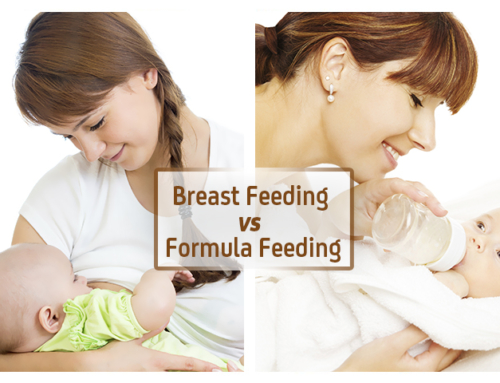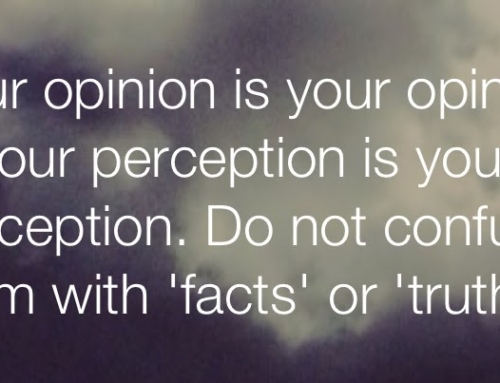 Lately I’ve been forced to handle many comments all relating to the same theme of, “Shouldn’t we all be supporting each other no matter what we choose?” It’s a beautiful sentiment that parents can pull out whenever they hear of people dissenting against a particular point of view. Actually, it’s often shared against a page or group of people who speak out against mainstream or guilt-free parenting. Or at least that’s where I hear it often.
Lately I’ve been forced to handle many comments all relating to the same theme of, “Shouldn’t we all be supporting each other no matter what we choose?” It’s a beautiful sentiment that parents can pull out whenever they hear of people dissenting against a particular point of view. Actually, it’s often shared against a page or group of people who speak out against mainstream or guilt-free parenting. Or at least that’s where I hear it often.
Shouldn’t we all support each other’s choices? Hmmm… well, no. Not that I don’t think we don’t offer support to any parent who asks for advice moving forward, but do we give carte blanche to all actions? Absolutely not. Or at least absolutely not for me. But here’s where my distinction comes in:
I can support a parent without supporting the action.
I said it. I can support you as a parent in any capacity I can while still maintaining that, for example, crying-it-out (CIO) is bad for your child (where most of this discussion comes from). And if you want information on alternatives or education as to why I think it’s bad, I will happily provide you with more than you probably hoped (all science-based). Even if you don’t want to talk about CIO but used it and are comfortable with it, but have questions on breastfeeding or babywearing or any number of other things, you are welcome to ask away. We are not solely defined by one act of parenting, no matter what that act is. Where the problems arise are when people are looking for confirmation as opposed to support.
This is a hard thing for many people to understand and grasp. Harder still to live with. I regularly get parents who have used CIO come to EP either here or on Facebook and who look to have people in this community – one that is clear it does not promote CIO – to condone what they did. They don’t want forgiveness for a mistake (likely because they don’t see it as a mistake, which is fine). They aren’t interested in reading any information. They aren’t interested in just leaving it because they are comfortable with their decision and don’t feel they need to go somewhere that is openly looking to promote alternatives to try and change minds. They want everyone to tell them that what they did was fine and there were no problems and that everyone supports their decision (not them, their decision). Not surprisingly, this doesn’t happen, and then they get mad and others come in and we end up where this started… “Shouldn’t we support each other?” (Or really, shouldn’t we support all choices?)
I would ask that before you use this phrase with anyone, you actually look to what you’re asking. The definition of support is “to bear the weight of; to hold up”. One can do that for a parent who struggles and needs help without simply telling them what they want to hear. To hold someone up is to help them. I have never, ever viewed “help” as being anything but giving someone all the information they can use so they can make an informed decision, and if the decision has passed and they’re still talking about it? Give them more information because something isn’t sitting right. I’m not here to tell you that everything you’ve done is great and you’re a perfect parent. I can tell you, quite honestly, that we all make mistakes and that you can only overcome them and move forward if you stop trying to justify them when you know they feel uncomfortable to you. (If they don’t feel uncomfortable, you should look long and hard as to why you feel the need to have confirmation from total strangers.)
I can handle bearing the weight of a mother who needs help. I can search resources and give all the advice I have in my arsenal and trust she will make a decision that is best for her given the information she has up to that point. What I cannot do is offer platitudes for methods that harm babies. I just can’t. Especially because a method is just that – a method – there is no individual, with all the extra considerations that entails, attached. That stands even if a mother wants to hear it.
And no, I don’t view that as not supporting her. In fact, I view the action of simply agreeing to make her feel better to be non-supportive because down the line she has to live with that decision, and the longer she goes with it, the longer the guilt may build. (Oh yeah, there’s also the baby in this who I will also support.) Why would I not give her a place and opportunity to learn and move on? If she doesn’t want it, she doesn’t have to take it, but I don’t have to compromise on what kind of advice I offer. I know many parents who made a decision that is contrary to what I would have done, but did it with eyes wide open and they feel no guilt. Nor do they ask for others to tell them it was “okay”, especially not places that are open about disagreeing with a particular act.
In short, the next time we sit down to talk about “supporting” moms, I hope we all think about what we mean. Simply telling a mother that whatever she does is fine is not support. If a mother hears information she disagrees with, she is capable of disregarding it, but to avoid giving her the information (when asked) under the guise of “support” or to suggest she be told everyone agrees with what she did? Well, that helps no one.






Relates to one of my favorite sayings “do you love people or people’s approval?” Because if you actually love people, then there are times when you are going to be extremely unpopular, and if you love people’s approval there are going to be times you are stuck praising and supporting that which you know is wrong. If you *know* something is wrong (relevent to this blog CIO for instance) and yet praise it when asked to give an opinion because you are afraid to anger the person seeking support, you aren’t loving that person. The difference between being loving and just being an annoying busybody, however, is making sure you do give proper support in *love*, not in pride, and make sure you actually have standing to speak. (And last I heard EP is still a freely accessible site, not something that being shoved down mom’s throat at their mandatory internet reading time.)
I love that quote – I hadn’t heard it before but it’s so true! And I agree about how to speak to someone. You don’t go up to the lady at the grocery store who hasn’t asked your opinion, but if you come to EP and then start looking for confirmation, you’ve willingly entered the discussion. Be prepared to hear something you don’t like! (Though for my numbers, I wouldn’t complain about EP being mandatory for internet time 😉 )
[…] Une opinion que je partage au sujet du soutien : Supporting Moms: Tell Me What I Want To Hear? […]
So true! I saw a photo project to promote moms not judging each other, that no way is the best way to parent, all that jazz. But when I hear about people planning to formula feed, without some health concern of course, I can’t not judge. With all the science out there to support breastfeeding, and to encourage responsive parenting, how can people expect a pat on the back and a “you did the best you could” from everyone if they didn’t really try?
And this applies to more than just parenting methods: if you don’t want honest feedback, don’t bring it up in the first place people.
Monica I totally agree, I can never understand how people can carry a baby and give birth but cringe at the thought of feeding their baby. At least try! I try to avoid certain issues (bf’ing, CIO, etc) with some friends because I know we disagree and I feel quite strongly about them, but if someone asks for advice I’m certainly not going to condone formula or CIO x
Yes! Excellently said!
This stems from false equivalence. Just because everyone has an opinion about something doesn’t mean that all opinions are equal.
Yet we are raised in a society that keeps conflating the right to have an opinion with the idea that yours is just as valid as everyone else’s. Just because you believe that walking down the street blindfolded is as safe as not, doesn’t make it true.
Opinions and evidence can match up, but they aren’t required to.
Needing affirmation simply feeds into this idea that my opinions and beliefs are valid simply for having them.
If you want support for an opinion then you need one with plenty of evidence underpinning it, not wishful thinking.